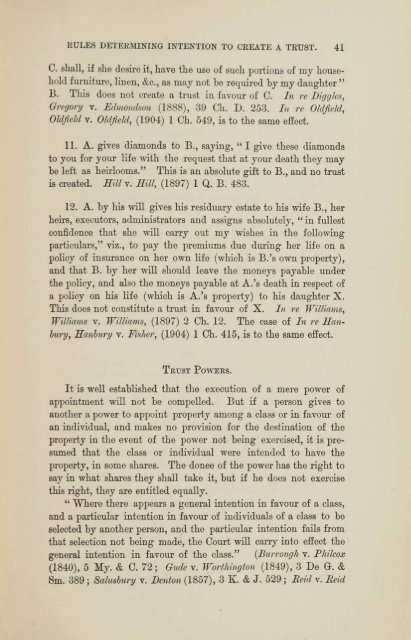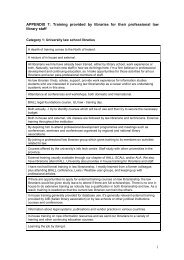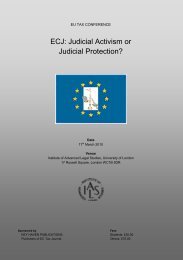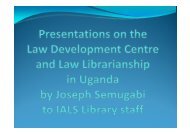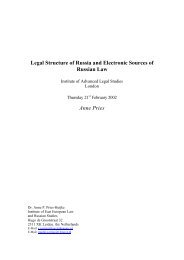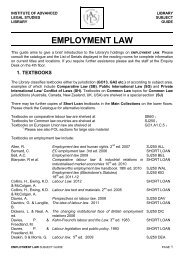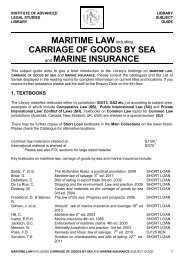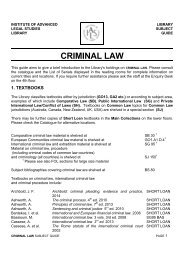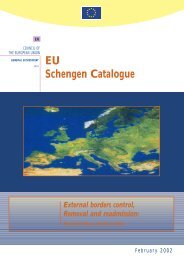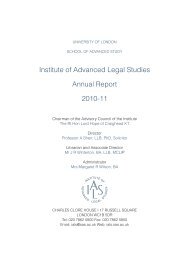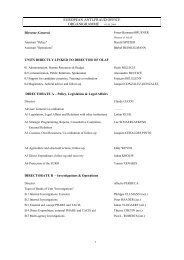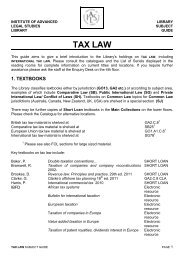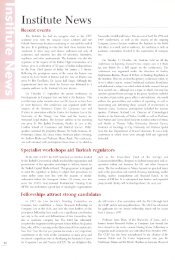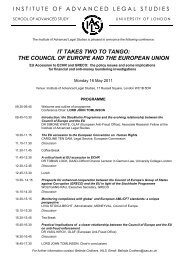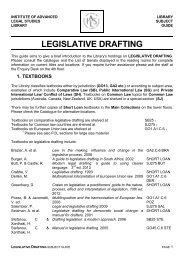a thesis - Institute of Advanced Legal Studies
a thesis - Institute of Advanced Legal Studies
a thesis - Institute of Advanced Legal Studies
Create successful ePaper yourself
Turn your PDF publications into a flip-book with our unique Google optimized e-Paper software.
RULES DETERMINING INTENTION TO CREATE A TRUST. 41<br />
C. shall, if she desire it, have the use <strong>of</strong> such portions <strong>of</strong> my household<br />
furniture, linen, &c., as may not be required by my daughter "<br />
B. This does not create a trust in favour <strong>of</strong> C. In re Diggles,<br />
Gregory v. Edmondson (1888), 39 Ch. D. 253. In re Oldfield,<br />
Oldfield v. Oldfield, (1904) 1 Ch. 549, is to the same effect.<br />
11. A. gives diamonds to B., saying, " I give these diamonds<br />
to you for your life with the request that at your death they may<br />
be left as heirlooms." This is an absolute gift to B., and no trust<br />
is created. Hill v. Hill, (1897) 1 Q. B. 483.<br />
12. A. by his will gives his residuary estate to his wife B., her<br />
heirs, executors, administrators and assigns absolutely, " in fullest<br />
confidence that she will carry out my wishes in the following<br />
particulars," viz., to pay the premiums due during her life on a<br />
policy <strong>of</strong> insurance on her own life (which is B.'s own property),<br />
and that B. by her will should leave the moneys payable under<br />
the policy, and also the moneys payable at A.'s death in respect <strong>of</strong><br />
a policy on his life (which is A.'s property) to his daughter X.<br />
This does not constitute a trust in favour <strong>of</strong> X. In re Williams,<br />
Williams v. Williams, (1897) 2 Ch. 12. The case <strong>of</strong> In re Hanbury,<br />
Hanbury v. Fisher, (1904) 1 Ch. 415, is to the same effect.<br />
TRUST POWERS.<br />
It is well established that the execution <strong>of</strong> a mere power <strong>of</strong><br />
appointment will not be compelled. But if a person gives to<br />
another a power to appoint property among a class or in favour <strong>of</strong><br />
an individual, and makes no provision for the destination <strong>of</strong> the<br />
property in the event <strong>of</strong> the power not being exercised, it is presumed<br />
that the class or individual were intended to have the<br />
property, in some shares. The donee <strong>of</strong> the power has the right to<br />
Bay in what shares they shall take it, but if he does not exercise<br />
this right, they are entitled equally.<br />
" Where there appears a general intention in favour <strong>of</strong> a class,<br />
and a particular intention in favour <strong>of</strong> individuals <strong>of</strong> a class to be<br />
selected by another person, and the particular intention fails from<br />
that selection not being made, the Court will carry into effect the<br />
general intention in favour <strong>of</strong> the class." (Burrough v. Philcox<br />
(1840), 5 My. & C. 72; Glide v. Worthington (1849), 3 De G. &<br />
Sm. 389 ; Salusbury v. Denton (1857), 3 K. & J. 529 ; Reid v. Beid


